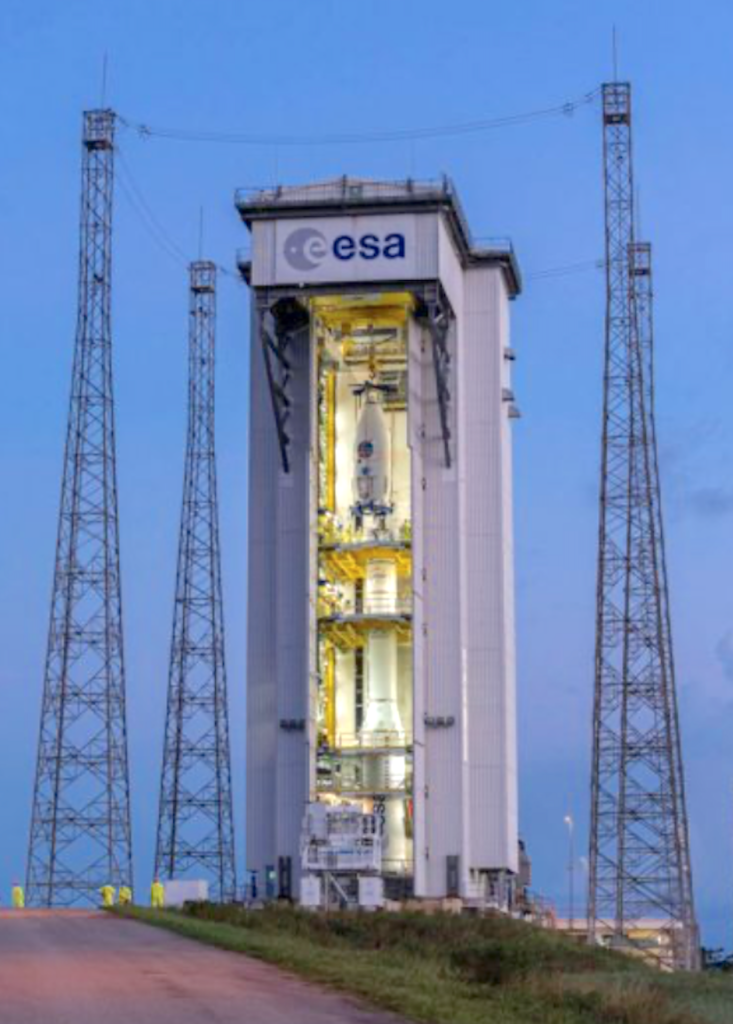
September 1 has been established as the ‘go’ date for the lightweight Vega launcher’s flight from French Guiana to demonstrate Arianespace’s rideshare response to the growing small satellite market.
This upcoming Proof of Concept mission – which carries a total of 53 small satellites on a new dispenser system – was authorized for Tuesday which confirmed the preparedness of Vega, along with the payloads, the Spaceport’s launch site infrastructure, and the network of tracking stations.
Designated Flight VV16 in Arianespace’s launcher family numbering system, it will validate the Small Spacecraft Mission Service (SSMS) – using a modular dispenser whose components can be assembled as needed in a building-block style. For tomorrow’s flight, seven microsatellites are installed on the dispenser’s upper portion, while 46 smaller CubeSats have been positioned on the lower portion’s hexagon-shaped module.
During Vega’s flight sequence, the seven microsatellites are to be deployed in Sun-synchronous orbit from 40 minutes into the mission through 52 minutes; followed by the CubeSats’ phased release from 1 hour, 42 minutes to just under 1 hour, 45 minutes.
SSMS provides Arianespace with flight opportunities for nano- and micro-satellites, offering solutions perfectly suited to this growing sub-segment of the launch marketplace. The service enables multiple small satellites from 1 kg. to 500 kg. to be flown together on Vega with the objective of sharing the launch cost.
Arianespace and SSMS provide the same services to the small satellite operatore as the largest customers – while new operators such as laboratories, universities and start-ups are guaranteed optimum conditions for the launch of their space projects.
The SSMS dispenser system is a European Space Agency (ESA) product developed by Italy’s Avio under ESA leadership, and was produced by the Czech company SAB Aerospace s.r.o. (CZ). The European Union contributed to the financing of tomorrow’s Proof of Concept flight.
